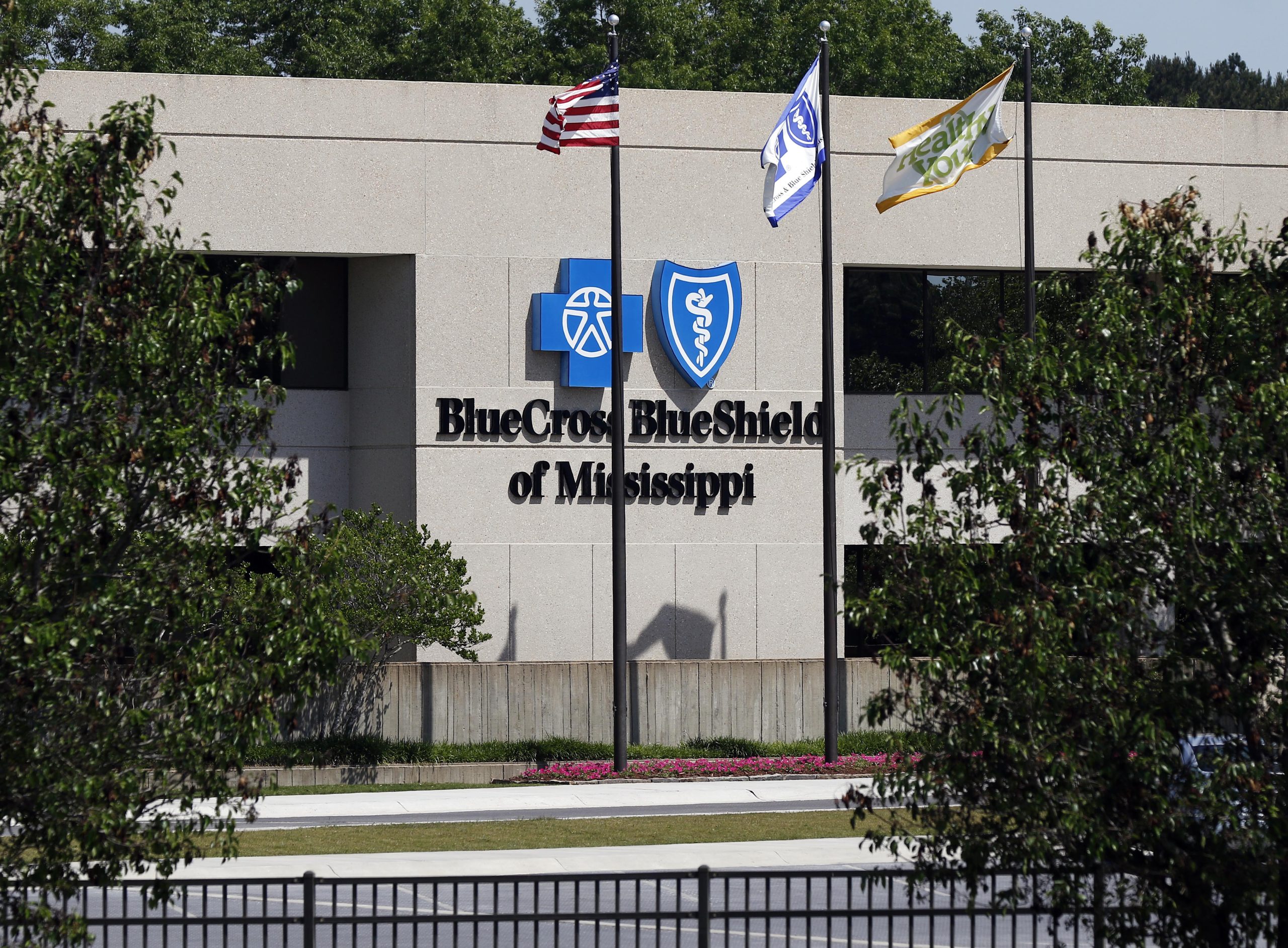Mississippi Today
BCBS drops defamation lawsuit against UMMC

BCBS drops defamation lawsuit against UMMC
Blue Cross and Blue Shield of Mississippi dropped its defamation lawsuit against the University of Mississippi Medical Center, one day after the two parties signed a contract agreement to bring the hospital back in network with the state’s largest insurer.
James McCullough II, an attorney representing the insurance company, dismissed the lawsuit Friday with prejudice — meaning these complaints cannot be refiled again in court — and asked that no answer or motion for summary judgment be filed in court.
In the July lawsuit filed in Rankin County Circuit Court, Blue Cross alleged that UMMC’s public relations campaign was “designed to disseminate false and defamatory statements about Blue Cross to the public.”
The company took issue with the campaign’s advertisements and public statements made by UMMC employees that allege Blue Cross ended its contract with the hospital and the insurer “excluded” UMMC from the network of providers as a result. The insurer claimed the campaign was defamatory and harmed its reputation and business.
In response to the July filing, Blue Cross filed for a subpoena of UMMC’s communications with news outlets Mississippi Today and SuperTalk Radio, which both closelycovered the contract dispute between the private insurer and the state’s largest hospital.
The subpoena also specifically asked for communications between UMMC officials and Kate Royals, Mississippi Today’s community health editor who worked as a writer/editor at UMMC between stints at the news organization.
Mississippi Today nor any of its employees have been subpoenaed or been named as a party in any lawsuit related to the contract dispute.
UMMC had received deadline extensions for their response to the lawsuit, according to courtdocuments.
The lawsuit was against UMMC employees Vice Chancellor for Health Affairs and Dean of the School of Medicine Dr. LouAnn Woodward, Associate Vice Chancellor for Clinical Affairs Dr. Alan Jones, Executive Director of Communications and Marketing Marc Rolph, and other unnamed UMMC employees.
UMMC itself was not named as a defendant in the lawsuit because state law grants UMMC immunity for defamation committed by its employees.
Editor’s note: Editor’s note: UMMC, through an ad agency, has placed paid advertisements about the BCBS dispute on Mississippi Today’s website. Advertisers have no input in the editorial process. Kate Royals, Mississippi Today’s community health editor since January 2022, worked as a writer/editor for UMMC’s Office of Communications from November 2018 through August 2020.
This article first appeared on Mississippi Today and is republished here under a Creative Commons license.
Did you miss our previous article…
https://www.biloxinewsevents.com/?p=201425
Mississippi Today
On this day in 1997


Dec. 22, 1997

The Mississippi Supreme Court upheld the conviction of white supremacist Byron De La Beckwith for the 1963 murder of Medgar Evers.
In the court’s 4–2 decision, Justice Mike Mills praised efforts “to squeeze justice out of the harm caused by a furtive explosion which erupted from dark bushes on a June night in Jackson, Mississippi.”
He wrote that Beckwith’s constitutional right to a speedy trial had not been denied. His “complicity with the Sovereignty Commission’s involvement in the prior trials contributed to the delay.”
The decision did more than ensure that Beckwith would stay behind bars. The conviction helped clear the way for other prosecutions of unpunished killings from the Civil Rights Era.
This article first appeared on Mississippi Today and is republished here under a Creative Commons license.![]()
Mississippi Today
Medicaid expansion tracker approaches $1 billion loss for Mississippi

About the time people ring in the new year next week, the digital tracker on Mississippi Today’s homepage tabulating the amount of money the state is losing by not expanding Medicaid will hit $1 billion.
The state has lost $1 billion not since the start of the quickly departing 2024 but since the beginning of the state’s fiscal year on July 1.
Some who oppose Medicaid expansion say the digital tracker is flawed.
During an October news conference, when state Auditor Shad White unveiled details of his $2 million study seeking ways to cut state government spending, he said he did not look at Medicaid expansion as a method to save money or grow state revenue.
“I think that (Mississippi Today) calculator is wrong,” White said. “… I don’t think that takes into account how many people are going to be moved off the federal health care exchange where their health care is paid for fully by the federal government and moved onto Medicaid.”
White is not the only Mississippi politician who has expressed concern that if Medicaid expansion were enacted, thousands of people would lose their insurance on the exchange and be forced to enroll in Medicaid for health care coverage.
Mississippi Today’s projections used for the tracker are based on studies conducted by the Institutions of Higher Learning University Research Center. Granted, there are a lot of variables in the study that are inexact. It is impossible to say, for example, how many people will get sick and need health care, thus increasing the cost of Medicaid expansion. But is reasonable that the projections of the University Research Center are in the ballpark of being accurate and close to other studies conducted by health care experts.
White and others are correct that Mississippi Today’s calculator does not take into account money flowing into the state for people covered on the health care exchange. But that money does not go to the state; it goes to insurance companies that, granted, use that money to reimburse Mississippians for providing health care. But at least a portion of the money goes to out-of-state insurance companies as profits.
Both Medicaid expansion and the health care exchange are part of the Affordable Care Act. Under Medicaid expansion people earning up to $20,120 annually can sign up for Medicaid and the federal government will pay the bulk of the cost. Mississippi is one of 10 states that have not opted into Medicaid expansion.
People making more than $14,580 annually can garner private insurance through the health insurance exchanges, and people below certain income levels can receive help from the federal government in paying for that coverage.
During the COVID-19 pandemic, legislation championed and signed into law by President Joe Biden significantly increased the federal subsidies provided to people receiving insurance on the exchange. Those increased subsidies led to many Mississippians — desperate for health care — turning to the exchange for help.
White, state Insurance Commissioner Mike Chaney, Gov. Tate Reeves and others have expressed concern that those people would lose their private health insurance and be forced to sign up for Medicaid if lawmakers vote to expand Medicaid.
They are correct.
But they do not mention that the enhanced benefits authored by the Biden administration are scheduled to expire in December 2025 unless they are reenacted by Congress. The incoming Donald Trump administration has given no indication it will continue the enhanced subsidies.
As a matter of fact, the Trump administration, led by billionaire Elon Musk, is looking for ways to cut federal spending.
Some have speculated that Medicaid expansion also could be on Musk’s chopping block.
That is possible. But remember congressional action is required to continue the enhanced subsidies. On the flip side, congressional action would most likely be required to end or cut Medicaid expansion.
Would the multiple U.S. senators and House members in the red states that have expanded Medicaid vote to end a program that is providing health care to thousands of their constituents?
If Congress does not continue Biden’s enhanced subsidies, the rates for Mississippians on the exchange will increase on average about $500 per year, according to a study by KFF, a national health advocacy nonprofit. If that occurs, it is likely that many of the 280,000 Mississippians on the exchange will drop their coverage.
The result will be that Mississippi’s rate of uninsured — already one of the highest in the nation – will rise further, putting additional pressure on hospitals and other providers who will be treating patients who have no ability to pay.
In the meantime, the Mississippi Today counter that tracks the amount of money Mississippi is losing by not expanding Medicaid keeps ticking up.
This article first appeared on Mississippi Today and is republished here under a Creative Commons license.![]()
Mississippi Today
On this day in 1911


Dec. 21, 1911

Josh Gibson, the Negro League’s “Home Run King,” was born in Buena Vista, Georgia.
When the family’s farm suffered, they moved to Pittsburgh, and Gibson tried baseball at age 16. He eventually played for a semi-pro team in Pittsburgh and became known for his towering home runs.
He was watching the Homestead Grays play on July 25, 1930, when the catcher injured his hand. Team members called for Gibson, sitting in the stands, to join them. He was such a talented catcher that base runners were more reluctant to steal. He hit the baseball so hard and so far (580 feet once at Yankee Stadium) that he became the second-highest paid player in the Negro Leagues behind Satchel Paige, with both of them entering the National Baseball Hame of Fame.
The Hall estimated that Gibson hit nearly 800 homers in his 17-year career and had a lifetime batting average of .359. Gibson was portrayed in the 1996 TV movie, “Soul of the Game,” by Mykelti Williamson. Blair Underwood played Jackie Robinson, Delroy Lindo portrayed Satchel Paige, and Harvey Williams played “Cat” Mays, the father of the legendary Willie Mays.
Gibson has now been honored with a statue outside the Washington Nationals’ ballpark.
This article first appeared on Mississippi Today and is republished here under a Creative Commons license.![]()
-

 News from the South - Arkansas News Feed7 days ago
News from the South - Arkansas News Feed7 days agoFaith-inspired ministry opens health clinic in Little Rock
-

 News from the South - Florida News Feed6 days ago
News from the South - Florida News Feed6 days ago‘Dirty Dancing,’ ‘Beverly Hills Cop,’ ‘Up in Smoke’ among movies entering the National Film Registry
-

 Our Mississippi Home6 days ago
Our Mississippi Home6 days agoThe Meaning of the Redbird During the Holiday Season
-

 Mississippi Today5 days ago
Mississippi Today5 days agoMississippi PERS Board endorses plan decreasing pension benefits for new hires
-

 Local News2 days ago
Local News2 days agoHard Rock Hotel & Casino Biloxi Honors Veterans with Wreath-Laying Ceremony and Holiday Giving Initiative
-

 News from the South - North Carolina News Feed2 days ago
News from the South - North Carolina News Feed2 days agoSocial Security benefits boosted for millions in bill headed to Biden’s desk • NC Newsline
-

 News from the South - Missouri News Feed3 days ago
News from the South - Missouri News Feed3 days agoCould prime Albert Pujols fetch $1 billion in today's MLB free agency?
-

 Mississippi News Video3 days ago
Mississippi News Video3 days ago12/19- Friday will be breezy…but FREEZING by this weekend
































